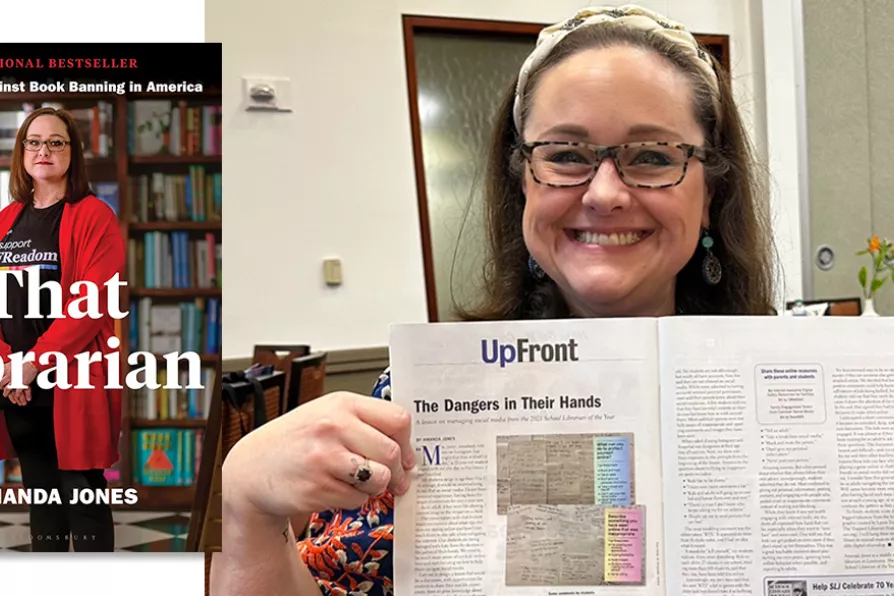SCOTT ALSWORTH suggests that video games have a lot to learn the rich tradition of Marxist theatre
Don’t ban the books
SUE TURNER is inspired by the example of a librarian’s struggle to confront the book-banning movement

 THE GOOD FIGHT: Librarian Amanda Jones showing her article on cyberbullying at the School Library Journal Summit, December 2023
[Amanda Jones/CC]
THE GOOD FIGHT: Librarian Amanda Jones showing her article on cyberbullying at the School Library Journal Summit, December 2023
[Amanda Jones/CC]
That Librarian — The Fight Against Book-Banning in America
Amanda Jones, Bloomsbury, £18
THE first amendment to the constitution of the United States purports to protect freedom of expression, namely freedom of speech, religion and the press.
However, this freedom was flouted from the start and by the 1850s the Southern states were censoring anti-slavery material, including Uncle Tom’s Cabin which was given a public burning.
Similar stories

JOHN HAWKINS welcomes the passion, grief, precision and elegance of an eloquent witness of genocide

RON JACOBS welcomes the translation into English of an angry cry from the place they call the periphery

Public libraries are sanctuaries which facilitate the exploration of the universe of ideas for free for those curious enough. ROGER McKENZIE advocates their protection against authoritarian incursions, US style

DAVID HORSLEY points to the continued relevance of an inspirational black communist whose 110th birthday anniversary will be celebrated on Sunday










